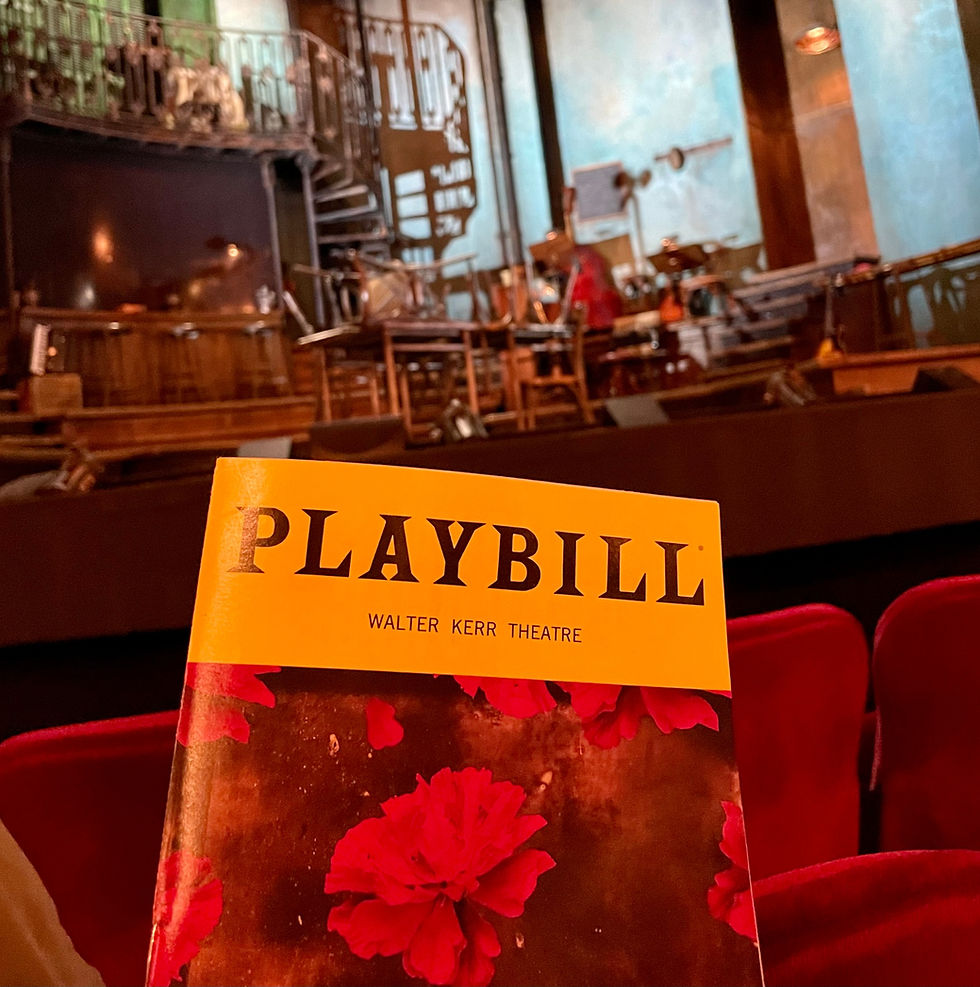Matthew 6:1-8
by Katy Lines

There’s something I am drawn to about walking into a theatre, finding your seat, and snapping a photo of the playbill. The anticipation of the curtain rising, the first character steps on stage, and the show begins. A story is told. Well, not ‘told’ exactly, but performed. The actors and crew work hard to produce the story they want communicated. How a line is delivered, when the lights drop low, which music provides the soundtrack— all of that contributes to the performance, to convey the intended message. If the actor raises an eyebrow at a particular moment, or the music is light-hearted, the audience assumes it is a comedy. But slow it down, darken the stage, move the music lower, and drama builds.
And after the show, the audience, the cast, and the crew all leave the theatre. The cast removes their costumes, wigs, makeup, and head out for late night drinks. The audience exits with reviews and comments in response to the performance. And in the morning, real life resumes— work, childcare, grocery shopping.
A show, or performance is exactly that— a deliberate manipulation of the environment, experience, and posture to convey a particular message. But a performance doesn’t necessarily carry with it the lived reality of what is being communicated. For instance, when two lovers kiss on stage they likely are merely acting, and don’t have romantic feelings for each other. It’s a performance of intimacy, but not true intimacy.
As Jesus shares with his followers about the path he invites them on, he challenges them to perhaps one of the most difficult portions of the Jesus way: love even those who seek your harm; love your enemies (Mt 5:43-48). He then continues by pushing that even further: Be careful about performing your acts of justice (or righteousness) to be seen by others (Mt 6:1-4). Is it a public veneer that you love those opposed to you, or is it authentic love? Are you crafting a persona? Are you seeking significance?
Are we doing what we do simply as a posture to show that we are aligned with a correct message, or are we doing what we do because it’s good work that needs doing? Most of the work of true justice occurs slowly, unobtrusively, in small and ordinary ways. That doesn’t mean it’s not important; it’s just not very glamorous. It doesn’t come with accolades or name recognition or awards. And usually, at the end of the day, you go home exhausted, wondering if you made any difference in people’s lives. Jesus’s way of true righteousness isn’t dependent upon the size of the audience, or their applause. It’s the way of justice that occurs backstage and after the show, without name recognition in the playbill. Following Jesus’s way of justice is not about us. We live justly because it is right, because it is the way Jesus showed us.

Likewise, the way of Jesus is a journey in the very presence of God. Jesus calls his followers to take off their makeup, be authentically themselves, honest and trusting in God’s companionship (Mt 6.5-8). We all want to be seen. We all want to know that we matter. And Jesus says that it is our Creator who knows our depths, who perceives our personal motives and character. No need to seek significance, posture for position. This is personal work, this giving of ourselves honestly to God (that is, prayer). But in turn, we then join together to pray to “Our Father,” to long for “your kingdom come.” With personal maturing, we discover that God knows what we truly need (v. 8); we can then trust God together in giving ourselves in prayer, and in life to the way of Jesus.


This is my favorite line: "This is personal work, this giving of ourselves honestly to God (that is, prayer). " Creates a new definition for prayer. And makes prayer a sacred offering. And simplifies my list about "How to please God." Thanks, this is terrific.